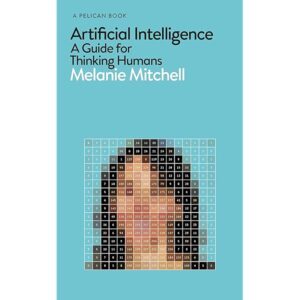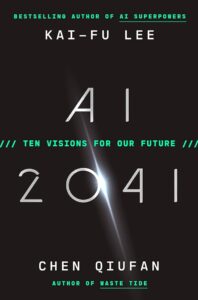Best Books On AI And Machine Learning
Artificial intelligence (A.I.) is a hot topic right now, often discussed with extreme opinions and little clarity. Some say A.I. will transform every industry, while others believe it might end the world. But the answers to basic questions like “What is A.I.?”, “How does it work?”, “Where did it come from?”, and “Where is it going?” are often buried in technical language that’s hard to understand.
Before the launch of ChatGPT a little over a year ago, it was hard to get people interested in A.I. Sam Altman, the CEO of OpenAI, talked about the need for A.I. regulation, but few paid attention. Editors weren’t interested, and readers didn’t care.
After ChatGPT launched, everyone had an opinion, even if they didn’t understand A.I. Movies didn’t help either, often showing A.I. starting wars, enslaving humanity, or teaching us about love. With Silicon Valley’s history of social irresponsibility, trusting A.I. creators became difficult. Even those who invented the technology sometimes don’t fully understand it. It’s a wonder that anything good about A.I. gets written at all.
Books about A.I. usually fall into two categories: “We’re all going to die” and “How to get rich.” But there are some great books on A.I. if you can find them. Here are five worth reading:
1. The Alignment Problem by Brian Christian (2020)

This book is a deep dive into how to align machine behavior with human values. Christian explains that the problem isn’t that A.I. will end the world, but that we need to figure out how to make machines follow human values. This is a challenge we’ve faced since the invention of the cotton gin. The book is hopeful but realistic, acknowledging that aligning A.I. with human values will be messy.
2. Artificial Intelligence: A Guide for Thinking Humans by Melanie Mitchell (2019)

Mitchell’s book is reliable and easy to understand. It provides a history of A.I. development and answers essential questions about the technology simply and clearly. She acknowledges the confusion in the field, noting that opinions on A.I.’s progress vary widely. After reading this book, you’ll have a better idea of what you know and don’t know about A.I.
3. The Algorithm: How A.I. Decides Who Gets Hired, Monitored, Promoted, and Fired and Why We Need to Fight Back Now by Hilke Schellmann (2024)

This book explores the use of A.I. in human resources, highlighting both its potential benefits and abuses. Schellmann investigates how A.I. tools can increase efficiency and reduce human bias, but also how they can be misused, leading to biased and harmful decisions. Her book emphasizes that A.I. is a tool used by people, and its effectiveness depends on how it’s implemented.
4. Progressive Capitalism: How to Make Tech Work for All of Us by Ro Khanna (2022)

Khanna’s book addresses the political aspects of A.I. and proposes ways to ensure its benefits are widely shared. He suggests creating technology hubs in the Midwest and South to spread economic gains and prevent data discrimination. Khanna argues that strong ethical and legal frameworks are needed to regulate A.I. and prevent it from exacerbating existing social inequalities.
5. AI 2041: Ten Visions for Our Future by Kai-Fu Lee and Chen Qiufan (2021)

This book combines speculative fiction with factual explanations of A.I. technologies. Each chapter features a story by Chen, followed by Lee’s explanations of the underlying technology. The book explores various scenarios across different countries and technologies, offering a balanced view of A.I.’s potential impacts.
Artificial intelligence is complex and often misunderstood. The best books on the subject acknowledge this complexity and focus on the human problems that A.I. reveals. These five books offer valuable insights into A.I., balancing optimism with realism and providing a clearer understanding of its challenges and opportunities.